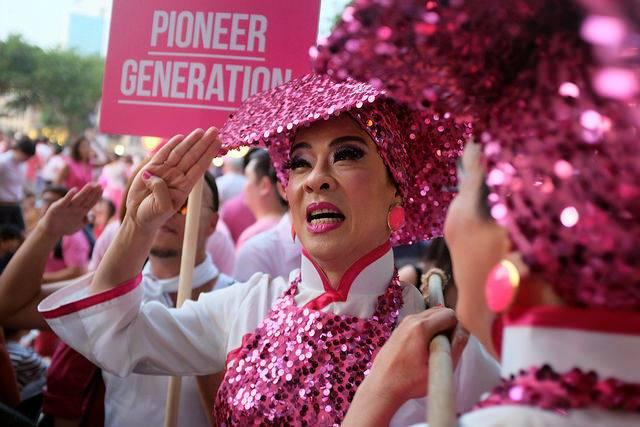
LGBT rights have come a long way in many countries, but in much of the world, society is still steadfast in its opposition to equality on this front. The problem for many multinational companies is when they have solid LGBT equality policies on one hand, but are conducting business in countries where full equality of its citizens are a non-starter - with the argument that such acknowledgment of rights clashes with "local culture and traditions."
Starbucks was one company that was recently caught in the crosshairs between its support for gay employees and citizens and activists in Indonesia and Malaysia. An organization urged Indonesia's government to suspend the coffee giant's operating license as its commitment to the LGBT community was "not in line" with the country's social norms. Disdain amongst some citizens in Indonesia for Starbucks dates back as far as 2013, when during at a shareholder meeting, then-CEO Howard Schultz defended the company's policies to a shareholder by saying, "not every decision is an economic decision," and that those opposed to Starbucks' stance on gay rights could simply sell off their shares.
According to the World Economic Forum (WEF), Starbucks serves as a case study for companies that find themselves embroiled in such a controversy: do not get bogged down in the dispute, but at the same time, do not back down from any commitment to diversity, inclusion or equal rights.
Companies may find that they are caught in the middle, as what may seem as a basic tenet of human rights to one group is outlandish or offensive to another. But the evidence suggests that standing one's ground can help a company ensure such such a firestorm. WEF cited a study from the marketing communications consultancy Oglivy from earlier this summer. That survey concluded 46 percent of Americans agreed seeing a company's advertising campaign inclusive of LGBT-related themes would make them more inclined to purchase that company's goods or services. That percentage may not inspire confidence at a first glance; but marketing messages are quite fragmented today. Oglivy's research actually presents quite a strong number: 48 percent of the same people surveyed said they would avoid patronizing a company with a known reputation for discriminating against LGBT citizens.
And companies can also find opportunities to boost trust for their brands, as well as inspire other companies to support the rights of the LGBT community. Here in the U.S., the response of companies to the "bathroom bill" in North Carolina subjected the state's leadership to unflattering headlines and lost business as companies from Bank of America to NASCAR spoke out against the legislation. And earlier this summer in Singapore, a local LGBT rally raised 60 percent more in sponsorship money from local companies - even though local regulations were written to prevent foreign companies from supporting the event. In one word, support for LGBT rights comes down to one word: leadership.
Along with the United Nation's Human Rights Office, WEF is urging companies to companies to enact anti-discrimination policies, establish solid employee grievance procedures and perform due diligence. The organizations also say it behooves companies to ensure all employees have equal benefits and that managers are aware of such policies in order to ensure such protections are extended to LGBT customers, suppliers and distributors. In a nutshell, companies that lead by example for LGBT rights will nudge more companies to follow.
Image credit: Jnzl's Photos/Flickr

Leon Kaye has written for 3p since 2010 and become executive editor in 2018. His previous work includes writing for the Guardian as well as other online and print publications. In addition, he's worked in sales executive roles within technology and financial research companies, as well as for a public relations firm, for which he consulted with one of the globe’s leading sustainability initiatives. Currently living in Central California, he’s traveled to 70-plus countries and has lived and worked in South Korea, the United Arab Emirates and Uruguay.
Leon’s an alum of Fresno State, the University of Maryland, Baltimore County and the University of Southern California's Marshall Business School. He enjoys traveling abroad as well as exploring California’s Central Coast and the Sierra Nevadas.














